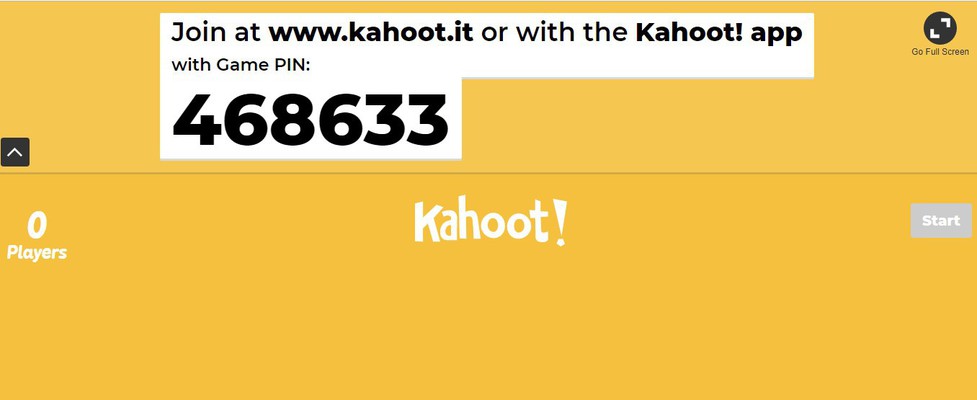I.E.Elexalde
P6 LANGUAGE HERITAGE
DIDACTIC UNIT P6 LANGUAGE HERITAGE.docx
Leaflets with useful Basque words
Students created some leaflets to give to the Greek students when they visited us in May 2020
Due to the coronavirus, the mobility was not possible,so all the leaflets were on the different platforms to see them virtually.
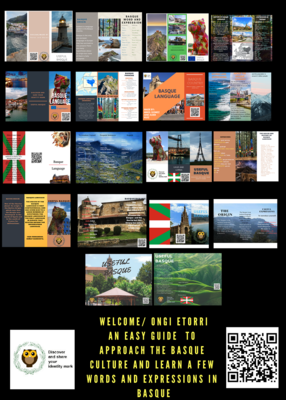
A visit to the Basque Language House
A visit to the Basque language House, in which students discoverd very interesting and useful information about the Basque language and shared it with the Greek partners
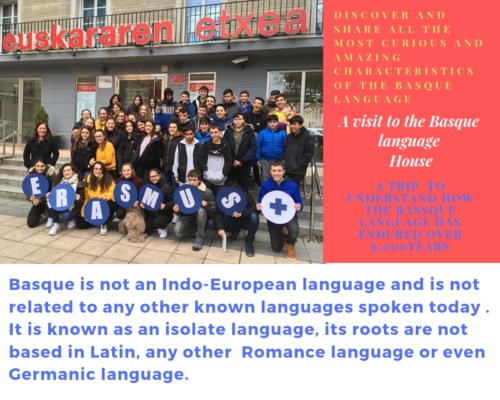
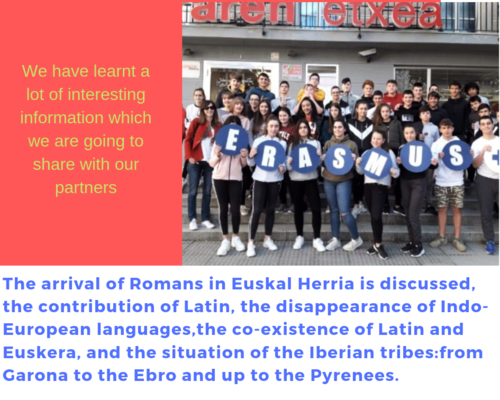
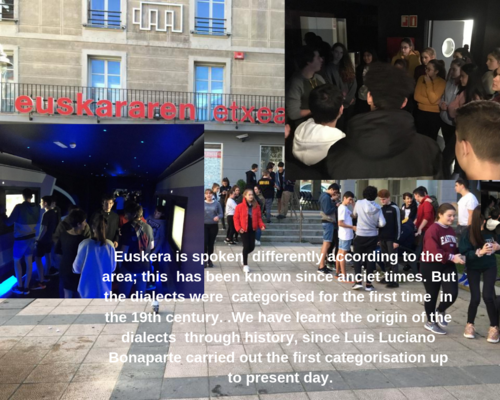
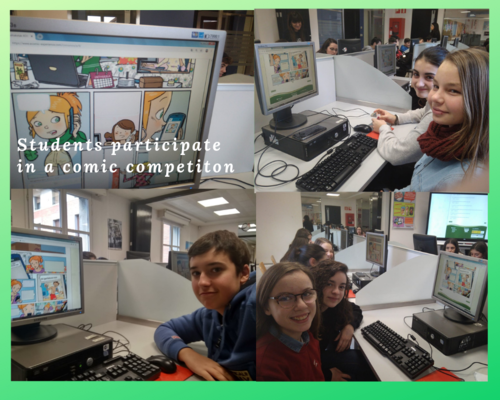
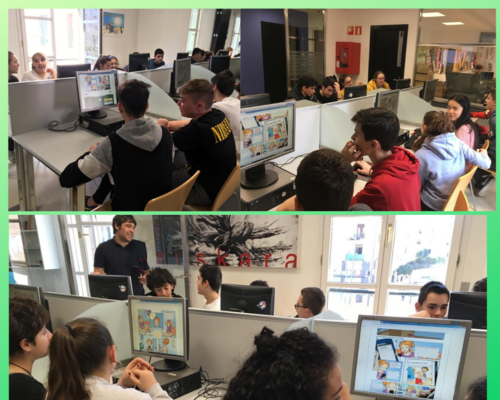
Video of the visit of the Basque Language House
A VERY INTERESTING VIDEO ABOUT THE BASQUE LANGUAGE. IT IS WORTH WATCHING IT
After students visited the Basque language House, they prepared a virtual report about it and shared it with the Greek partners and showed them interesting information about our Basque language.
Assesment
Rubric to assess the Basque language house
Basque language visit rubric.docx
As the project was extended until May 2921. Students of 4DBH from school year 2020-2021 created some kahoots related to topics of the project of Greek language heritage.
First, they read all the information which can be found on eTwinning related to it. They presented to the whole class and played the kahoots
The video of the presentations can be found at the endof the project on eTwinning in the section extension of the project.
The kahoots are ready to be played.
3rd Junior High School of Katerini
Didactic Unit 1: The History of the Greek Language
Objectives: The students are asked:
- To get to know the history of the Greek language.
- To perceive its continuity in the process of time and its incessant course through the centuries (3000 years).
- To realise the importance of Greek language for the modern spoken languages of Latin origin.
- To wake up to the word the richness of the Greek language and enrich their vocabulary.
- To discover, in the text which Zolotas pronounced in the frame of the yearly meetings of the World Bank, the connection between the Greek and English language.
- To get to know the use of electronic dictionaries and the e-tool eclipse.
- To work collectively in groups and present the results of this collaboration.
- To create activities of interaction with the Basque students based on their search on Greek language.
Description of the activities:
1st and 2nd didactic sessions.
-Introduction to the activity with the watching of an inclusive video in which the history of the Greek writing and language is presented. Discussion with the students and conclusions based on the content of the presentation.
-Reference to the Basque MEPs (Members of the European Parliament) who introduced an initiative to the European Commission to develop a program according to which Ancient Greek will be taught to all the grades of the Obligatory Education in all the countries-members, so that the Greek language will become the common language of the cultured Europeans.
-Discussion on this initiative and the thoughts it provoked.
-A presentation of Zolotas’ text which was pronounced in the 50s, in the frame of the meetings of the World Bank.
(You see the two speeches made by Zolotas below)
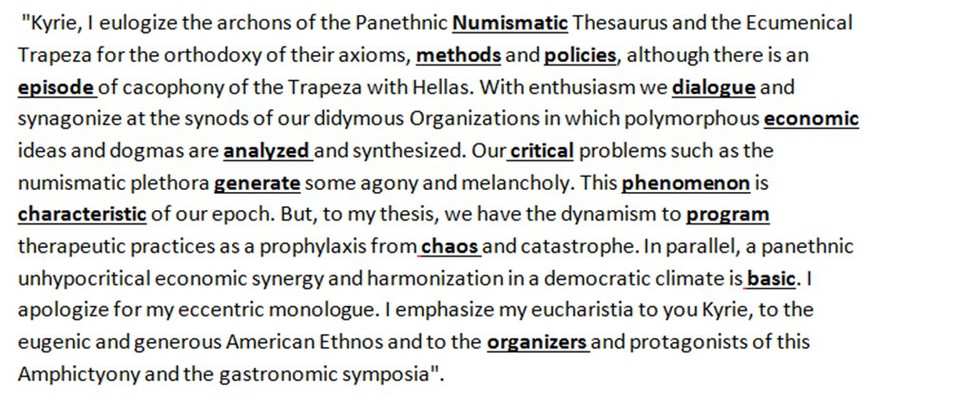
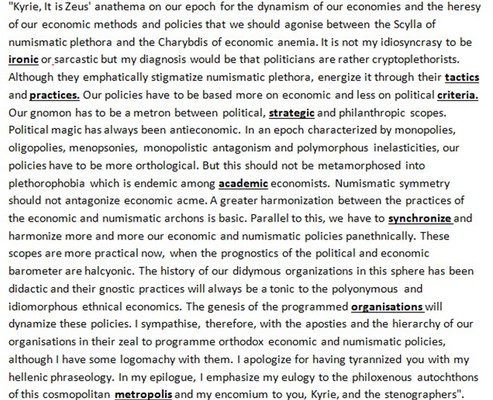
-The students express the impressions caused to them by the speech.
-The students are asked to spot a word from the text which made an impression on them, look up its meaning with the use of electronic dictionaries and record it.
3rd and 4th didactic sessions.
-The students learn how to create a crossword puzzle via eclipse tool in the ICT lab. They make two groups and making good use of the definitions of the entries they have recorded in the previous sessions, they create a crossword puzzle with the use of eclipse. The two teams swap the crosswords they have created and solve them. Then they present them to each other.
You can learn some interesting facts about the history of the Greek language by studying the following Padlet we created.
Didactic Unit 2
Objectives:
- The goal of this scenario is the students’ familiarisation with the stereotypical expressions that are used for wishes and which meet the needs of everyday routine as well as the proverbial speech.
- The approach is interlinguistic as the students come in contact with expressions and proverbs from various languages in the world.
Description of the activities:
Through the activities of this scenario the students are asked to:
- spot both linguistic as well as conceptional similarities and differences between wishes and proverbs,
- make second thoughts about the factors which influence the similarities and differences and
- sort out the language expressions according to their common characteristics.
Worksheets 1 & 2
Didactic Unit 2 (Worksheet 1).docx
Didactic Unit 2 (Worksheet 2).docx
A very interesting part of this month's topic was that we realised the importance of the Greek language and how it has influenced other European languages.
We enjoyed this month very much and we gained a lot of new knowledge about our language. 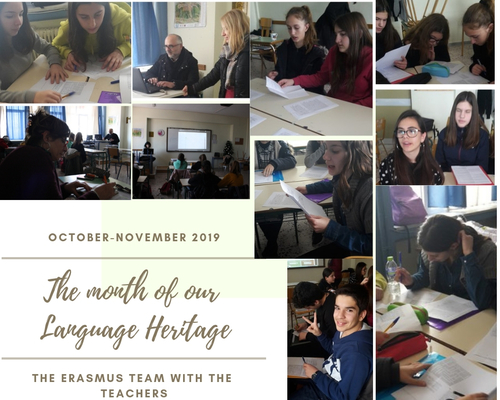
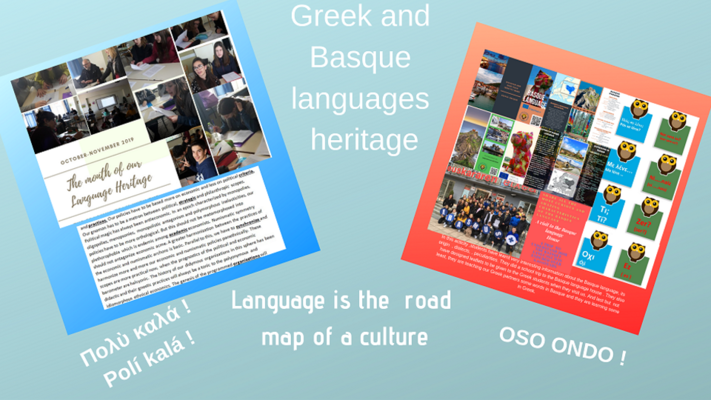
Our e-phrase book is ready!
Greek-Basque dialogues.pdf
ASSESSMENT
The Greek students will assess the knowledge they have gained about the Basque language doing a Kahoot quiz.
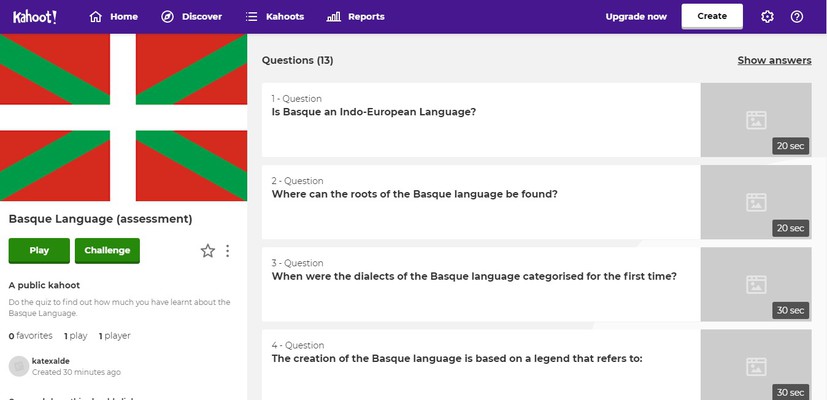
https://create.kahoot.it/details/basque-language-assessment/e2b0deb0-aeb7-49b6-a4bf-28b3dd65d857
Enter the following link and insert the Game PIN (468633)
https://kahoot.it/
